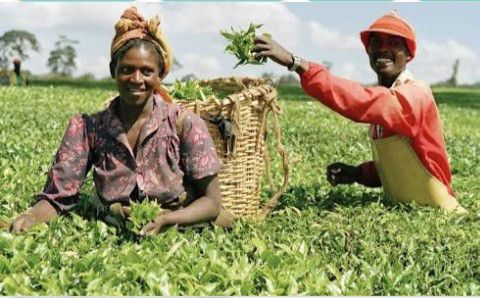HOW IN THE WORLD DID WE GET HERE?
A walk down a typical Nigerian street in the days before independence would reveal not just the rich diversity of people in the country but also the myriad agricultural resources that the nation possesses: fresh, juicy plantains adorns the fireplace and are sold to pedestrians, oranges and mango in vast abundance.
Cocoa, chief of cash crops, its planters holds post of esteem in the land, the groundnut pyramids of the north rival the height of the pyramid of Giza, tomatoes in their basketful and the homegrown Nigerian apple cherished by all and sundry. I have to stop now before I get too poetic, but that was the Nigeria then, even after independence, being a farmer was a thing of pride, knowing that you are fighting hunger is enough satisfaction.
The diversity of vegetation is reflected also in the dietary choice of the people, wonderful meals litter the nation, from the wonderful ofensala, the idikiakong, the afang and other delightful soup and stew of the south and east, to the beans soup and various vegetable soup of the south west, the wonderful meals of the North too are an experience of their own, all prepared from locally sourced plant materials, the nation was at that time the ‘Food Eden’
How then did Nigeria get here?
How did we get to a point where we rely heavily on all things imported? This precarious and critical state where our balance of Trade is shifting away from us daily, how did we ?
The answer is simple, yet profound, it can be called out in one breath – The Oil Boom
Ever since The Oil Boom, the average Nigerian has been paying lip service to agriculture, this has developed into an uncanny, unchecked loathing for the occupation which men once boasted about, in the early days of the oil boom, being a petrol station attendant was a part-time job for young school leavers and tertiary students on vacation, but today, graduates are employed as Petrol station attendants, this is because the average Nigerian prefers the lowest paying white collar job you can imagine to working the soil or rearing animals.
The Nigerian government too has not helped matters, issues of inconsistencies in Governmental policies and legislative actions have plagued the Nation since creation, although the impact became more noted as regards the agricultural sector after the oil boom, as the Nation economy moved from an Agrarian-focused one to become Mineral-focused economy, the Government attention not only shifted, agriculture was placed in the hind-sight of Policies administrators in the country and the sector has since suffered.
Subsidies, incentives, loans and other programs that had hitherto been of solace to farmers were scraped since they were not given attention or funds, several international aids and grants were also lost, a notable example is the World bank grant that was used in establishing the Agricultural Development Programme, as a result farmers suffered, not making enough profit, some fled the farms and migrated to the city, the Nigerian Agricultural decline started.
That was how we got here, today we import even toothpicks, and we don’t produce enough for our own dietary needs that we have to spend millions of Naira to import supplements, that’s the Nigeria we are in today, but things are changing.
The government is beginning to see the need for a fix in the long term hole in the economy which cannot be plugged by the oil money, we must return to the farms, we must go back to our first love, the farm is the long term future of Nigeria, that is the only way to leave this place we are in.
Adeleke Babatunde is a passionate writer and speaker. He is also a student of the Federal University of Technology Akure where he is studying Agricultural Extension and communication Technology.

Hello! I find your post valuable for the wafrica community! Thanks for the great post! @wafrica is now following you! ALWAYs follow @wafrica and use the wafrica tag!
Thank you